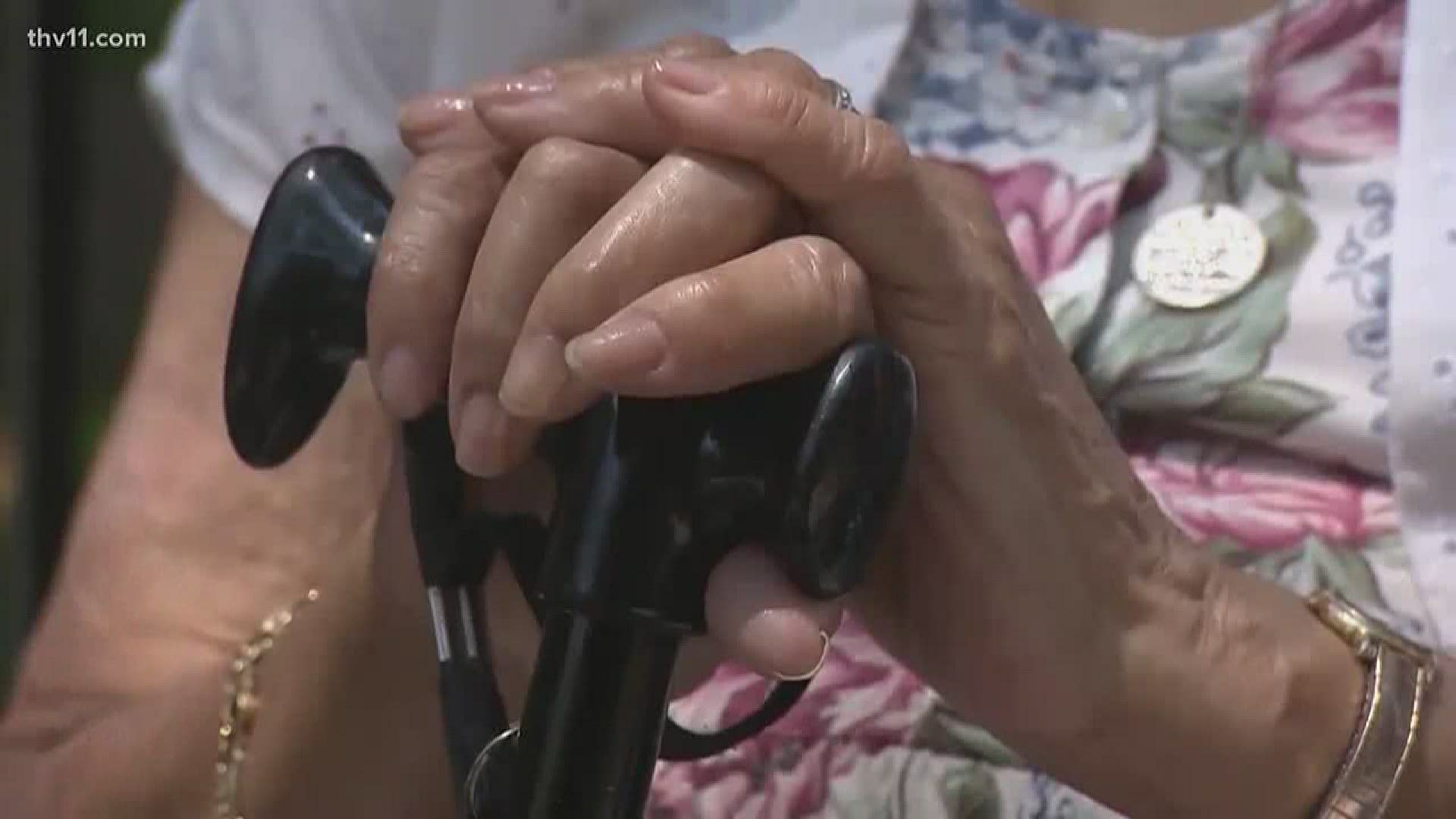LITTLE ROCK, Arkansas — For almost 10 weeks, we have tracked the spread of COVID-19. There is no doubt that it stalks one age group more than any other.
At every press conference, you hear it: The 65 and older age group is the most susceptible, and while the virus is bad enough what makes it worse — emotional instability.
Steven Simmons, Community Education Coordinator of the Senior Behavioral Health Unit, said there are signs or symptoms of some type of mental illness that are left untreated that certainly puts a person at risk for health complications.
"I think as a society we think of our Mama's and Daddy's or grandparents," Simmons said. "They just grow old and senile and we take for granted that there could perhaps be some triggers or factors that are going on that are causing them to suffer."
One in five of senior citizens you see is affected by mental illness, most often depression. That's why CHI St. Vincent has set up a whole unit to fight it.
"We take those persons all to the unit and our goal is to stabilize their mood and to re-establish a baseline so that they can continue to have a good quality of life," Simmons said.
But the isolation caused by the virus is a challenge to all families. That's why Simmons said reaching out to senior citizens daily is so important — calls, texting, zoom calls (if they’re tech-savvy) or something like it.
"Anything to where the deficits aren’t greater than what’s presented now with the self-isolation and quarantine," Simmons said.
And, of course, we all have older relatives who can get moody.
"When they start to have lingering and lasting effects, I certainly think that that is cause for concern and it’s certainly imperative to reach out for some help," Simmons said.
And with a disease as unrelenting as COVID-19, you need every ally you can get.
No matter how often we reach out, emotional issues can still occur. There are several warning signs that indicate whether or not a senior citizen close to you is depressed.
- Lack of interest in activities they once enjoyed
- Extreme fatigue
- The inability to focus or concentrate
- Feelings of hopelessness or even talk of suicide

